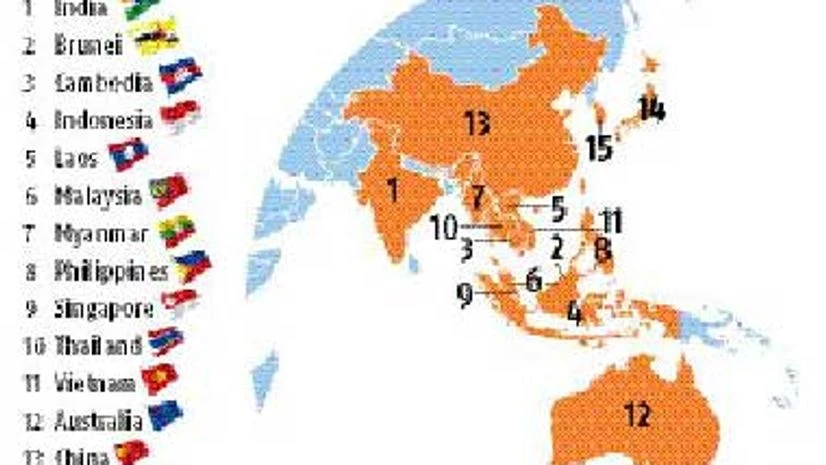The 12th round of negotiation for a Regional Comprehensive Economic Partnership (RCEP), started from this Friday at Perth, Australia, is expected to pit India further against developed countries like Australia, Japan and South Korea.
RCEP is a proposed free trade agreement (FTA) between the 10-member Association of South East Asian Nations (Asean) bloc and the six states with which they have existing FTAs - Australia, China, India, Japan, South Korea and New Zealand. Negotiations formally began in November 2012 at the Asean summit in Cambodia.
The said differences are over reduction in tariff rates on goods and market access in agriculture and services. India has gradually professed to more liberalisation in these segments but the developed countries feel our tariff rates are too high, a source in the commerce ministry said. The Indian delegation to the negotiations is led by minister of commerce and industry Nirmala Sitharaman.
India has offered to allow Asean countries, with which it already has an FTA, the most market access, eliminating tariffs on 80 per cent of all items. For Japan and South Korea, it has offered to open 65 per cent of its product space.
Australia, New Zealand and China get less preference. The government is proposing to eliminate duties on only 42.5 per cent of products, said the source. This was after Australia agreed to reduce tariffs by 80 per cent and New Zealand by 65 per cent.
Under an FTA, tariffs on most products traded between countries are either eliminated or reduced sharply, to a zero-duty regime, in phases. The commerce ministry says in our defence: "India was one of the first countries to have submitted its offers on goods, services and investments, in line with the RCEP ministerial mandate, even before the earlier round." The government also noted India's initial offer had been acceptable to most members, whereas other countries are still to offer better terms.
The negotiations were earlier slated to conclude by end-2015. It could not meet the deadline but negotiations have intensified after signing of the Trans Pacific Partnership between major economies like America, Japan and Australia this February. RCEP also aims to cover several areas such as goods, services, investment, economic and technical cooperation, competition and intellectual property rights. However, support for it remains mixed among all the stakeholders. Those who're for it say the Asean economies are growing, unlike the TPP ones. Also, that India shouldn't be left behind while the plurilateral system of the World Trade Organization slowly gives way to regional trade agreements.
However, others feel RCEP leaves a lot of underlying issues hanging, as is evident from the agreement draft which has eight chapters compared to the much more comprehensive TPP's 30.
The business community is wondering how difficult it will be to tap into the Asean markets, where China already has a big presence. India's total exports to Asean was $31 billion in 2014-15, the last complete year for which data is available. This was 10.2 per cent of the country's total exports.
Many are also worried on how India will manage to secure business amidst intense competition with foreign companies. The government has repeatedly called for better competitiveness, warning that the pharmaceutical and textile sectors, for instance, will be affected.
An official from the Confederation of Indian Industry said the business community needs to be convinced on why the government was going forward with RCEP when repeated calls were being made to review India's existing FTAs. "Domestic industry feels our existing FTAs have benefited partner countries more than us," he said, requesting anonymity.
Trade unions, farmer and other bodies are also worried over how small & medium enterprises, as well as the agriculture and dairy sectors, would cope; Australia, New Zealand and Japan have a big presence in these. In fact, these nations have continued to ask for deeper access to India's agricultural markets, while, goes the complaint, continuing to subsidise their own farmers.

)
